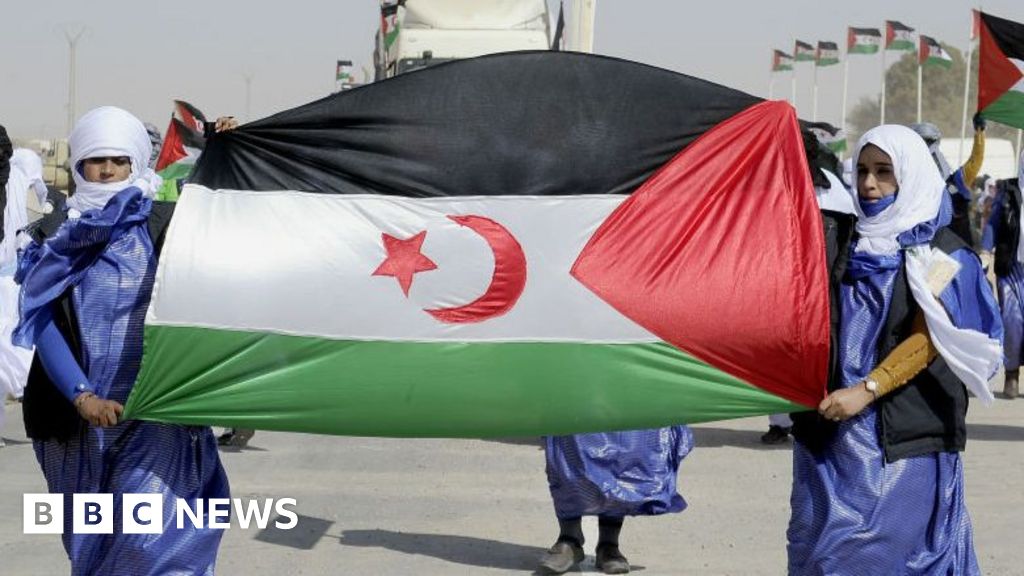The UK has backed Morocco's plan for ending a territorial conflict in Western Sahara, as part of a deal that will secure lucrative investment projects
The UK has backed Morocco’s plan for ending a territorial conflict in Western Sahara, as part of a deal that will secure lucrative investment projects in the 2030 men’s football World Cup.
For decades British governments have refused to take sides over who should control Western Sahara, which is considered a “non-self-governing territory” by the UN.
But UK Foreign Secretary David Lammy has announced the UK now supports a plan that would give Western Sahara autonomy but Morocco ultimate sovereignty.
On a visit to Moroccan capital Rabat, Lammy said Morocco’s autonomy proposal was “the most credible, viable and pragmatic basis for a lasting resolution of the dispute”.
Lammy also signed an agreement to boost collaboration between the two countries on critical infrastructure projects for the World Cup, which Morocco is hosting alongside Spain and Portugal in five years’ time.
The deal would allow “British businesses to score big on football’s biggest stage”, Lammy said.
Algeria, which backs the Western Saharan independence movement, said it “regrets” Lammy’s announcement.
Algeria said Morocco’s autonomy plan was now 18 years old and had never been submitted to the Sahrawis as a basis for negotiation.
Western Sahara is a mineral-rich former Spanish colony that has been fought over for five decades in what is one of Africa’s longest frozen conflicts.
Morocco holds much of the 100,000 sq miles (260,000 sq km) of territory but part is controlled by the Polisario Front, an armed group seeking independence for the local Sahrawi people.
The African Union recognises Western Sahara’s independence but in recent years, various countries have backed Morocco’s position, including the United States, Spain, France, Germany and the Netherlands.
British diplomats said the UK had decided to follow suit but only in return for business deals and a new commitment from Morocco to support the principle of self-determination, publish a new version of its autonomy plan and restart negotiations.
A procurement agreement between the two countries will “create a unique foundation for UK companies to access public tenders in Morocco”, the UK Foreign Office said, pointing to deals in the health sector as well as contracts to upgrade Casablanca’s airport.
The joint communique reaffirmed both sides’ respect for “the non-use of force for the settlement of conflicts and their support for the principle of respect for self-determination”.
Previously the UK has always said the status of Western Sahara was “undetermined” and supported “self-determination” for the people there.
Morocco’s Foreign Minister Nasser Bourita welcomed the change in British policy, saying it marked an historic moment in the two nations’ 800-year-old relationship.
“It represents a genuine pivot toward a definitive resolution of the dispute,” he said.
Lammy said the deals signed in Rabat would “directly benefit British business”.
“Thanks to our work, British companies will be front of the queue to secure contracts to build Moroccan infrastructure, injecting money into our construction industry and ensuring that British businesses score big on football’s biggest stage,” he said.
After bitter fighting in the 1970s and 80s, the Polisario Front and Morocco agreed various ceasefires in the 1990s but failed to resolve the underlying dispute.
The United Nations has deployed peacekeepers to the region since 1991.
However, a long-promised UN-brokered referendum to allow the people of Western Sahara to choose between independence or Moroccan control has never taken place.
www.bbc.com
